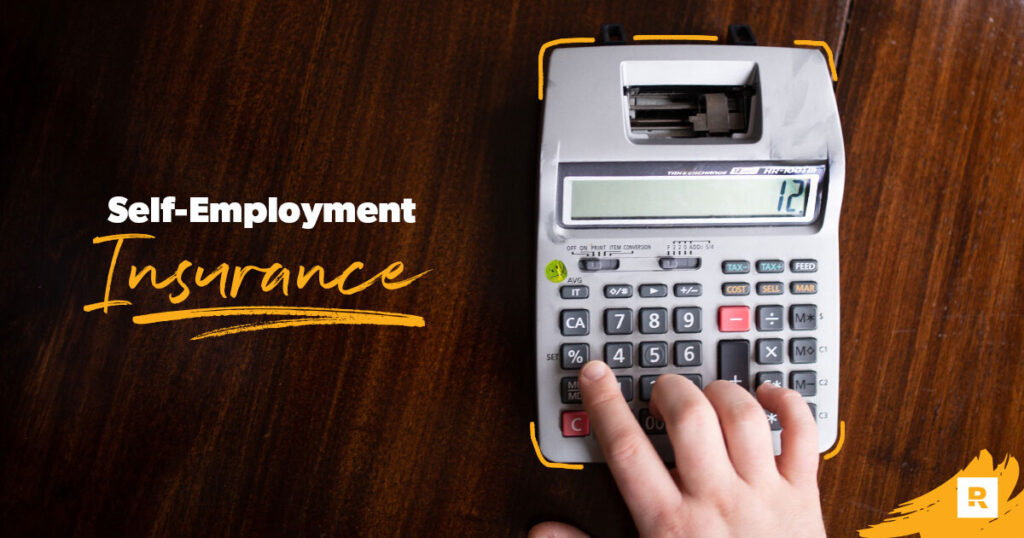For self-employed business owners, securing the right life insurance is vital not only for protecting personal finances but also for safeguarding the future of your business. Unlike employees who often have access to group life insurance plans through their employer, self-employed individuals must take a proactive approach to securing coverage. Life insurance can provide financial security for your family and loved ones in case of unforeseen events while also offering a way to ensure the continuity of your business.
Key factors to consider when selecting a life insurance policy include the type of coverage, premium costs, flexibility, and how it aligns with your business needs. Options such as term life, whole life, and universal life insurance can be tailored to suit your financial goals, whether you’re aiming to cover debts, replace income, or leave a legacy. In this guide, we’ll explore the best life insurance options for self-employed business owners, answer common questions, and offer tips to help you make the best decision for your unique circumstances.
Why Life Insurance is Essential for Self-Employed Business Owners
Life insurance provides financial security for your family, business partners, and employees in the event of your death. As a self-employed business owner, the risks of not having life insurance are even higher, and the stakes are much greater. Here’s why life insurance is vital for self-employed individuals:

- Protecting Family Members: In the event of your passing, life insurance can replace lost income, help pay off debts, and cover everyday living expenses.
- Ensuring Business Continuity: If your death impacts your business’s ability to operate, life insurance can help your family or business partners continue operations.
- Debt Protection: Many self-employed individuals rely on loans or personal guarantees for their business. Life insurance can cover these liabilities.
Types of Life Insurance for Self-Employed Business Owners
There are several types of life insurance to consider, each with different benefits. The right policy depends on your business structure, personal goals, and financial situation. Here are the most common types:
a. Term Life Insurance
Term life insurance is a straightforward and affordable option for self-employed business owners. You choose a specific term (e.g., 10, 20, or 30 years), and the policy pays a death benefit to your beneficiaries if you pass away during that period. Benefits:
- Lower Premiums: Term life insurance is typically more affordable than permanent insurance.
- Straightforward Coverage: Easy to understand and doesn’t accumulate cash value, so it’s cheaper.
- Customizable: You can choose the term length that aligns with your needs (e.g. until your mortgage is paid off or your children are independent).
Term life insurance is ideal for business owners who need temporary coverage at a lower cost.
b. Whole Life Insurance
Whole life insurance is a type of permanent life insurance that provides lifelong coverage and builds cash value over time. Benefits:
- Lifetime Coverage: Whole life insurance guarantees coverage for as long as you live, as long as premiums are paid.
- Cash Value Accumulation: Part of your premiums are invested, allowing you to accumulate a cash value that can be borrowed.
- Higher Premiums: While whole life insurance provides lifelong coverage, the premiums are significantly higher than term policies.
Whole Life is suitable for business owners who want permanent coverage and are looking for a policy that can serve as an investment.
c. Universal Life Insurance
Universal life insurance is another form of permanent life insurance that provides flexibility in both coverage and premiums. You can adjust your premiums and death benefits as your needs change. Benefits:
- Flexible Premiums and Benefits: You can alter the policy’s premiums and coverage amounts based on changing needs.
- Cash Value Growth: Similar to whole life insurance, universal life policies accumulate cash value over time, which earns interest.
- Potential for Lower Premiums: Depending on interest rates and other factors, universal life insurance may be more affordable than whole life.
How Much Life Insurance Do You Need as a Self-Employed Business Owner?
Determining the right amount of life insurance for your needs depends on various factors, including your personal life, business structure, and financial obligations. A good rule of thumb for self-employed business owners includes:

- Personal Expenses: Calculate the income your family needs to maintain its lifestyle. Consider living expenses, education costs, and outstanding debts (e.g., mortgage, credit cards, and personal loans).
- Business Debts and Liabilities: If you have business loans, personal guarantees, or other liabilities, your life insurance policy should be enough to pay off these debts.
- Key Person Insurance: If your business relies on your expertise or presence (as most small businesses do), consider adding key person insurance. This type of coverage insures the company itself, providing a payout to help the company continue operating without you.
- Future Business Expenses: If you plan to expand or invest in your business, ensure your life insurance policy can help cover any future financial obligations.
Pros and Cons of Term vs. Permanent Life Insurance
When choosing between term life insurance and permanent life insurance, it’s essential to consider the pros and cons of each. Here’s a breakdown:
Term Life Insurance
-
- Pros: More affordable premiums.
- Flexible term lengths to match business and personal milestones.
- Ideal for temporary coverage needs (e.g., until debts are paid off).
- Cons: Coverage ends after the term expires, and there’s no cash value buildup.
- Premiums can increase if you renew at an older age.
Permanent Life Insurance (Whole or Universal Life)
-
- Pros: Lifelong coverage.
- Builds cash value that can be borrowed or withdrawn.
- Premiums are predictable and remain constant (with universal life, premiums may vary).
- Cons: Higher premiums compared to term life.
- Complex policies with varying options and conditions.
Term life insurance is often recommended for self-employed business owners because it provides affordable coverage with a set duration. However, permanent life insurance can be a good option for those who want long-term coverage with an investment component.
The Importance of Reviewing Your Life Insurance Coverage Regularly
As your business and personal circumstances change, your life insurance needs may change as well. It’s essential to review your coverage regularly to ensure it remains adequate. Consider reviewing your policy in the following situations:
- Business Growth: If your business expands, hires more employees, or takes on additional loans, you may need higher coverage.
- Life Changes: Marriage, children, or the purchase of a home can increase your financial responsibilities and may require a more extensive policy.
- Retirement Planning: As you approach retirement, you may want to adjust your life insurance to reflect changes in income or business operations.
Tax Benefits of Life Insurance for Self-Employed Individuals
Life insurance offers potential tax advantages, which can be especially beneficial for self-employed business owners. Here are some key benefits:

- Tax-Deferred Growth: The cash value in permanent life insurance policies grows tax-deferred. This means you won’t have to pay taxes on the accumulated growth until you access the funds.
- Tax-Free Death Benefit: The death benefit paid to your beneficiaries is generally tax-free, providing your family with a financial safety net without additional tax burden.
- Business Deduction: In some cases, if you purchase key person insurance for your business, the premiums may be deductible as a business expense.
Key Person Insurance: A Must-Have for Your Business
As a self-employed business owner, key person insurance can be an essential part of your life insurance plan. This coverage is designed to protect your business if something happens to you. The business purchases a policy on your life and is the beneficiary of the death benefit. The funds can help your business:
- Cover Operational Costs: The death benefit can provide funds to keep the business running while you’re replaced or operations are adjusted.
- Repay Business Debts: If your business carries debts or loans, key person insurance can help cover these costs.
- Support Business Transition: If your family decides to sell the business or transition it, the death benefit can provide the necessary funds for a smooth handover.
How to Shop for the Best Life Insurance as a Self-Employed Business Owner
Shopping for the best life insurance for your business requires comparing various policies and providers. Here are some tips to help you find the best coverage:
- Research Providers: Look for reputable insurance companies that offer a variety of life insurance policies, including term, whole, and universal life.
- Get Multiple Quotes: Request quotes from multiple insurance providers to compare premiums, coverage options, and terms.
- Consult a Broker or Agent: An experienced insurance broker can help guide you through the process, recommend appropriate coverage, and ensure you’re getting the best deal.
- Read the Fine Print: Always understand the terms and conditions of your policy, including exclusions, limitations, and any additional fees.
Frequently Asked Questions
What type of life insurance is best for self-employed business owners?
Term life insurance is affordable and provides financial protection for a specific period, while whole life and universal life offer lifelong coverage with potential cash value accumulation.
How does life insurance protect my business?
Life insurance can help cover business debts, pay for a business succession plan, or fund buy-sell agreements to ensure a smooth transition after an owner’s death.
Can I deduct life insurance premiums as a self-employed person?
Generally, premiums for personal life insurance are not deductible, but business-related policies like key person insurance can be deductible.
What is key person insurance?
Key person insurance protects a business against financial loss due to the death or disability of a key employee or business owner, helping to ensure the company’s survival.
Should I buy life insurance for my business partner?
Yes, if you have a partner, buying life insurance as part of a buy-sell agreement ensures that the surviving partner can buy the deceased’s share of the business.
How much life insurance do I need as a business owner?
The amount depends on your business debt, income replacement needs, and family financial requirements. A good rule of thumb is to cover at least 10 times your annual income.
Can I get life insurance without a medical exam?
Yes, many insurers offer no-medical-exam policies, especially for term life, but they typically have higher premiums.
Is life insurance for business owners more expensive?
Life insurance premiums for self-employed individuals are generally similar to those for employees, but business-related coverage like key person insurance can increase costs.
Conclusion
For self-employed business owners, life insurance is a critical component of financial planning, both for personal protection and business continuity. The right life insurance policy can ensure your family’s financial security while providing peace of mind that your business will continue operating smoothly after your death. Whether you opt for term life, whole life, or universal life insurance, consider factors like your business’s financial obligations, income replacement needs, and long-term goals. Additionally, exploring options like key person insurance or a buy-sell agreement can help protect your business partners and their future.




